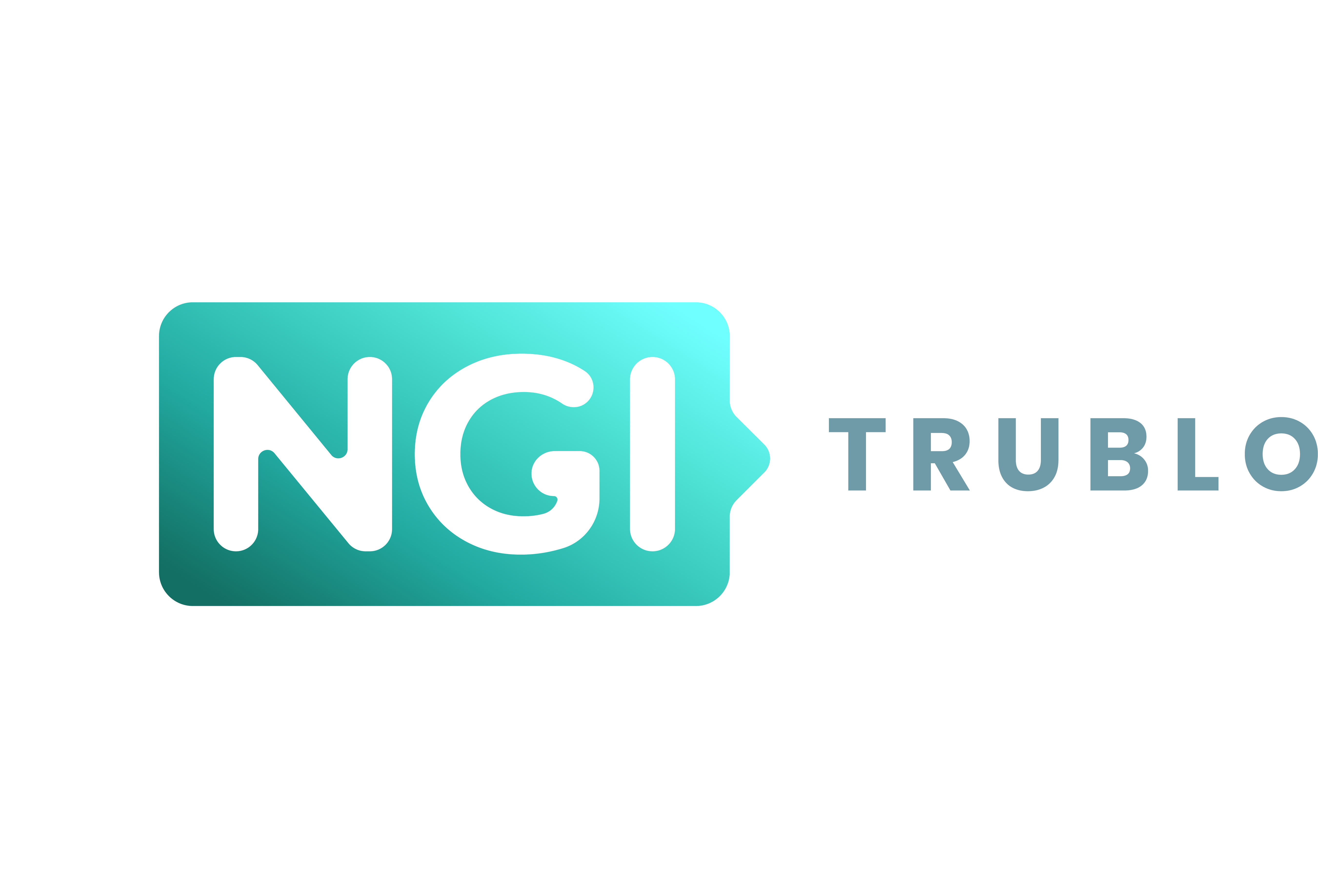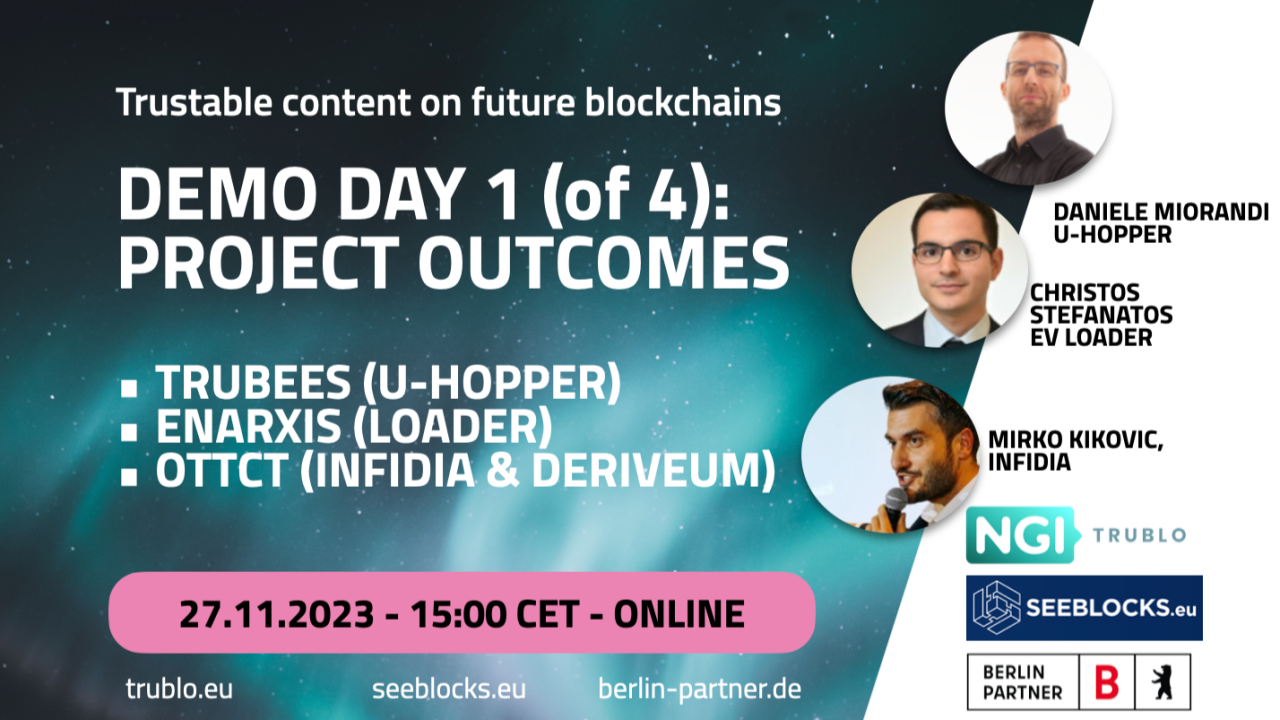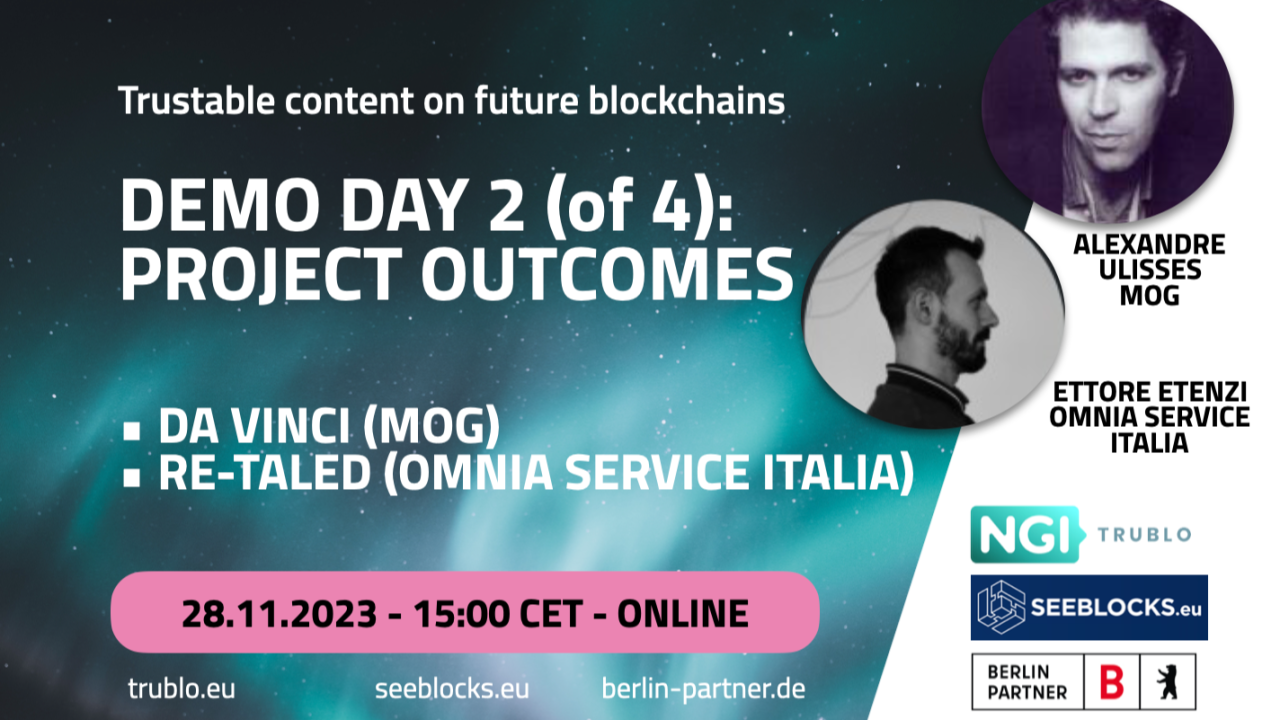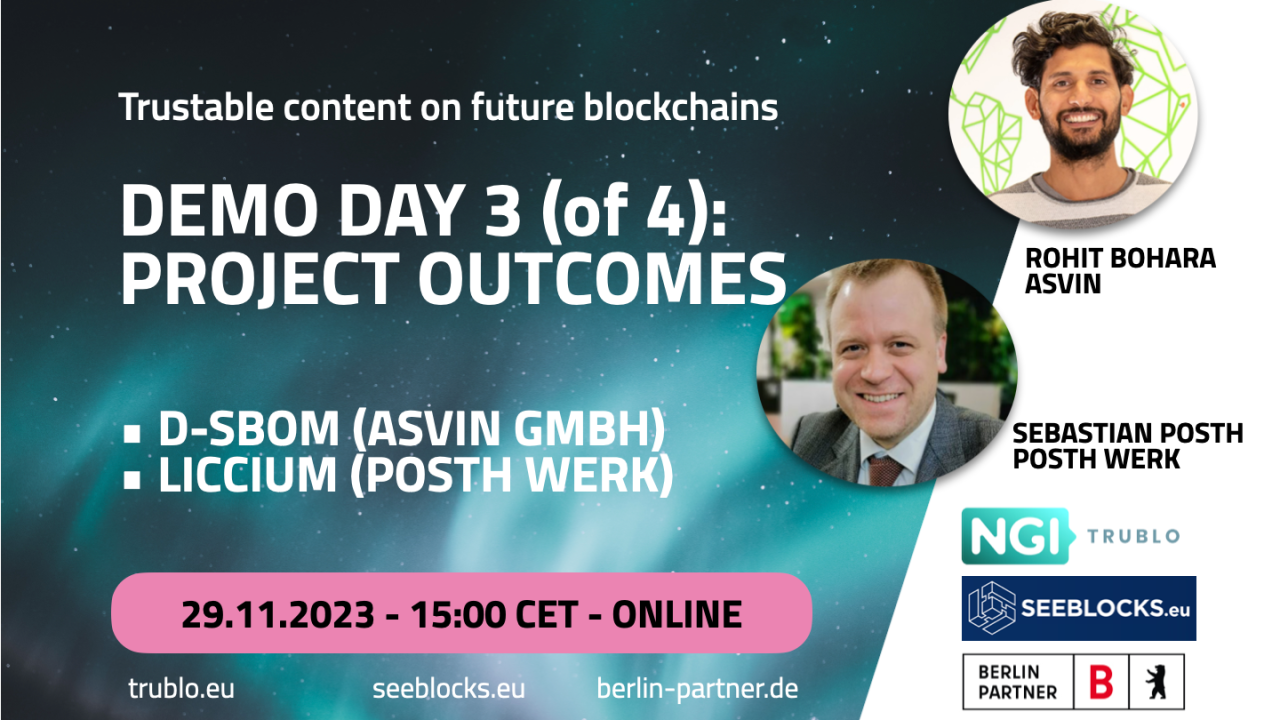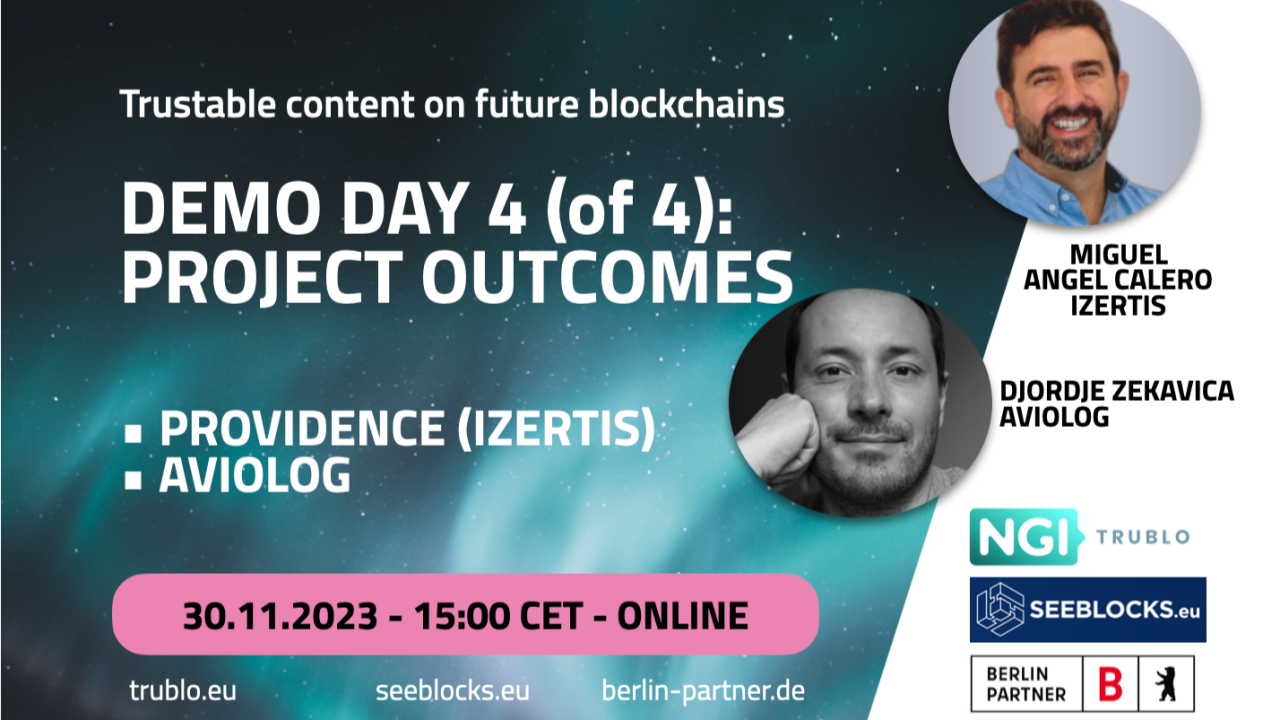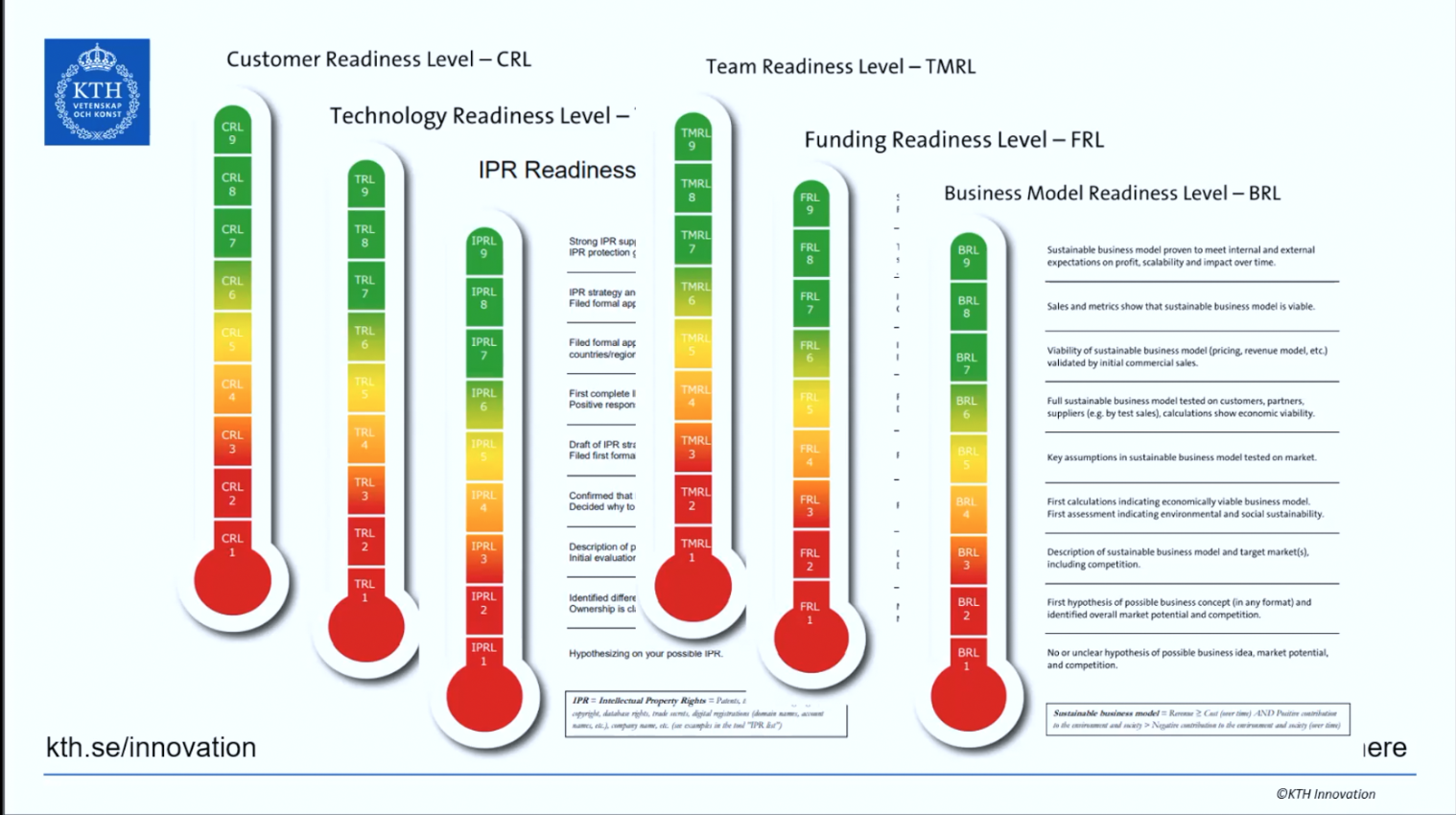PROJECT RESULTS
TruBlo provided funding and mentoring for 45 early-stage projects focused on developing trustworthy content for future blockchains. This page provides access to outcomes and contact options.
Explore key project outcomes, based on recorded videos, project descriptions, scientific research, open-source code, and white papers from the active phase spanning 2020-2023 on trublo.eu.
Demo Day 1
See and hear how the projects tackled the goal of trustable content for different use cases.
Demo Day 2
Da Vinci is a solution to enable safe crowdsourcing of video from a specific area (such as a big music festival or a sport event). Re-Taled is a solution for e-commerce trustability.
Demo Day 3
D-SBOM worked on higher security for IoT, based on better information about software being used. Liccium is a highly innovative and promising solution for content provenance.
Demo Day 4
Providence provides decentralized proofs of evidence to fight disinformation. Aviolog collects reliable/trustable data from aircraft for higher security and lower maitainance costs.
Expert Talks
 Hear and see how two innovative companies use blockchain for use cases in the fields of copyright and content provenance: Sharpshark and Numbers Protocol.
Hear and see how two innovative companies use blockchain for use cases in the fields of copyright and content provenance: Sharpshark and Numbers Protocol.
Additional resources
White Papers
Many of the projects contributed to research about the use of blockchain for trustable content.
Explore the full list of contributions here.
Code Repositories
Explore the open-source code developed by the projects. The work focused on new ways towards trust.
Code repositories links are here
White Papers
The projects with a commercial orientation produced elaborate White Papers to describe their ideas. Full list here including the option to download all PDFs.
Articles
Direct links to articles about TruBlo, to add more perspectives.
Articles from: Worldline, DW Innovation, Athens Technology Center.
Mentoring: Essential know-how to start and grow a company
How can an early idea grow into a company? To support the teams funded by TruBlo we conducted dedicated training sessions. See the videos here.
Expert Talk: How to use the Innovation Readiness Levels
This approach to managing new technology projects or a start-up was a tremendous help for the projects, for mentoring and as a way to measure progress. In the video, one of the creators provides a detailed overview of how to use this system.
Background: The TruBlo Project
TruBlo was active from November 2020 to November 2023. The project used cascade funding to support 45 early-stage ideas. The task: To explore how blockchain technologies such as decentralization or tokens could be used for trustworthy content. TruBlo was a part of the wider Next Generation Internet (NGI) initiative.
TruBlo initiated three open calls and selected ideas from over 300 submissions. In the first phase, projects received up to 75.000 euros to explore the primary content. Each open call had a first phase of 9 months; at the end of this period, TruBlo selected nine projects to receive additional funding of 100.000 euros to move their ideas as close as possible to “minimum viable products”.
All projects were supported with technical resources and training through Alastria. In addition, every team had a mentor. TruBlo conducted several training sessions to educate people on developing an idea into sustainable software with commercial potential.
In year three, the project focused on dissemination through expert talks covering relevant topics from media trends to new approaches for provenance data. In the final month the TruBlo Demo Day(s) provided a stage for selected projects to discuss their solutions.
Target participants are researchers, innovators and developers either as natural person(s) or from academia as well as from high tech companies including SMEs, legally established in an EU Member State, H2020 associated countries or Overseas Countries and Territories (OCT) linked to the Member States.
Why trustable content is important
“The blockchain is at the forefront of a revolution affecting the way we carry out transactions. It enables individuals to carry out operations among themselves, particularly those of a financial nature, which are guaranteed without the involvement of a trusted third party. This speeds up such interactions, and reduces their cost.”
“The easiest way to think of it is trust that flows through networks, marketplaces and platforms. And so it takes trust away from a top-down institution and decentralizes it using technology.”
